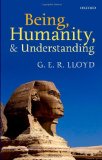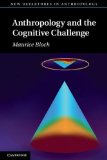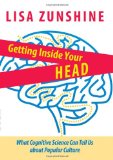August 23, 2012

Being, Humanity, and Understanding by G.E.R. Lloyd (Oxford University Press, USA, 2012)
(amazon.co.uk)
Book description from the publisher:
G. E. R. Lloyd explores the variety of ideas and assumptions that humans have entertained concerning three main topics: being, or what there is; humanity–what makes a human being a human; and understanding, both of the world and of one another. Amazingly diverse views have been held on these issues by different individuals and collectivities in both ancient and modern times. Lloyd juxtaposes the evidence available from ethnography and from the study of ancient societies, both to describe that diversity and to investigate the problems it poses. Many of the ideas in question are deeply puzzling, even paradoxical, to the point where they have often been described as irrational or frankly unintelligible. Many implicate fundamental moral issues and value judgements, where again we may seem to be faced with an impossible task in attempting to arrive at a fair-minded evaluation. How far does it seem that we are all the prisoners of the conceptual systems of the collectivities to which we happen to belong? To what extent and in what circumstances is it possible to challenge the basic concepts of such systems? Being, Humanity, and Understanding examines these questions cross-culturally and seeks to draw out the implications for the revisability of some of our habitual assumptions concerning such topics as ontology, morality, nature, relativism, incommensurability, the philosophy of language, and the pragmatics of communication.
Google Books preview:
Comments (0)
- culture,new books
August 21, 2012

The Guardian of All Things: The Epic Story of Human Memory by Michael S. Malone (St Martin’s Press, 2012)
(kindle ed.), (amazon.co.uk – 13 Sep)
Book description from the publisher:
A fascinating exploration of the history of memory and human civilization
Memory makes us human. No other animal carries in its brain so many memories of such complexity nor so regularly revisits those memories for happiness, safety, and the accomplishment of complex tasks. Human civilization continues because we are able to pass along memories from one person to another, from one generation to the next.
The Guardian of All Things is a sweeping scientific history that takes us on a 10,000-year-old journey replete with incredible ideas, inventions, and transformations. From cave drawings to oral histories to libraries to the internet, The Guardian of All Things is the history of how humans have relentlessly pursued new ways to preserve and manage memory, both within the human brain and as a series of inventions external to it. Michael S. Malone looks at the story of memory, both human and mechanical, and the historic turning points in that story that have not only changed our relationship to memory, but have also changed our human fabric. Full of anecdotes, history, and advances of civilization and technology, The Guardian of All Things is a lively, epic journey along a trajectory of history no other book has ever described, one that will appeal to the curious as well as the specialist.
Google Books preview:
Comments (0)
- culture,new books
August 5, 2012

Anthropology and the Cognitive Challenge (New Departures in Anthropology) by Maurice Bloch (Cambridge University Press, 2012)
(kindle ed.), (amazon.co.uk)
Book description from the publisher:
In this provocative new study one of the world’s most distinguished anthropologists proposes that an understanding of cognitive science enriches, rather than threatens, the work of social scientists. Maurice Bloch argues for a naturalist approach to social and cultural anthropology, introducing developments in cognitive sciences such as psychology and neurology and exploring the relevance of these developments for central anthropological concerns: the person or the self, cosmology, kinship, memory and globalisation. Opening with an exploration of the history of anthropology, Bloch shows why and how naturalist approaches were abandoned and argues that these once valid reasons are no longer relevant. Bloch then shows how such subjects as the self, memory and the conceptualisation of time benefit from being simultaneously approached with the tools of social and cognitive science. Anthropology and the Cognitive Challenge will stimulate fresh debate among scholars and students across a wide range of disciplines.
Comments (0)
- cognitive science,culture,new books
August 4, 2012

Getting Inside Your Head: What Cognitive Science Can Tell Us about Popular Culture by Lisa Zunshine (Johns Hopkins University Press, 2012)
(kindle ed.), (amazon.co.uk)
Book description from the publisher:
We live in other people’s heads: avidly, reluctantly, consciously, unaware, mistakenly, and inescapably. Our social life is a constant negotiation among what we think we know about each other’s thoughts and feelings, what we want each other to think we know, and what we would dearly love to know but don’t.
Cognitive scientists have a special term for the evolved cognitive adaptation that makes us attribute mental states to other people through observation of their body language; they call it theory of mind. Getting Inside Your Head uses research in theory of mind to look at movies, musicals, novels, classic Chinese opera, stand-up comedy, mock-documentaries, photography, and reality television. It follows Pride and Prejudice’s Mr. Darcy as he tries to conceal his anger, Tyler Durden as he lectures a stranger at gunpoint in Fight Club, and Ingrid Bergman as she fakes interest in horse races in Notorious.
This engaging book exemplifies the new interdisciplinary field of cognitive cultural studies, demonstrating that collaboration between cognitive science and cultural studies is both exciting and productive.
Google Books preview:
See also: Author’s website
Comments (1)
- cognitive science,culture,fiction
August 3, 2012

Genesis of Symbolic Thought by Alan Barnard (Columbia University Press, 2012)
(kindle ed.), (amazon.co.uk)
Book description from the publisher:
Symbolic thought is what makes us human. Claude Lévi-Strauss stated that we can never know the genesis of symbolic thought, but in this powerful new study Alan Barnard argues that we can. Continuing the line of analysis initiated in Social Anthropology and Human Origins (Cambridge University Press, 2011), The Genesis of Symbolic Thought applies ideas from social anthropology, old and new, to understand some of the areas also being explored in fields as diverse as archaeology, linguistics, genetics and neuroscience. Barnard aims to answer questions including: when and why did language come into being? What was the earliest religion? And what form did social organization take before humanity dispersed from the African continent? Rejecting the notion of hunter-gatherers as ‘primitive’, Barnard hails the great sophistication of the complex means of their linguistic and symbolic expression and places the possible origin of symbolic thought at as early as 130,000 years ago.
Comments (0)
- culture,human evolution,language,new books







